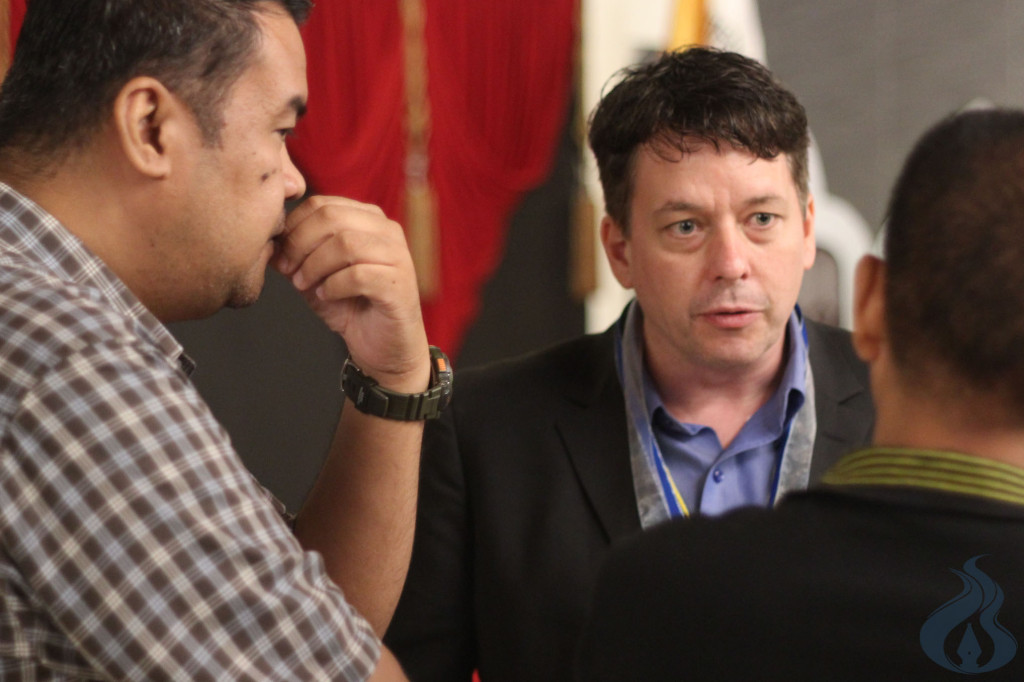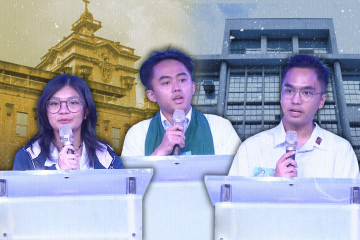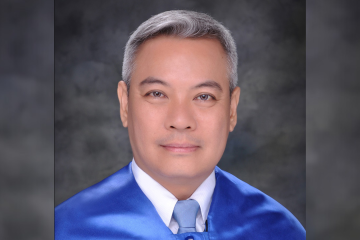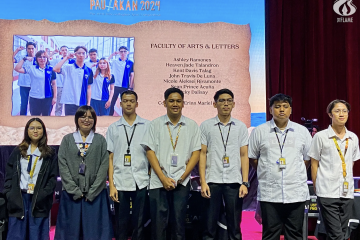
SCHOLARS FROM around the world gathered in the University of Santo Tomas (UST) to talk about the views and writings of late French philosopher Paul Ricoeur on politics, society, and religion in an international conference held Friday and Saturday.
Prof. Boyd Blundell from the Loyola University of the United States tackled the aspects of the self which Ricoeur once identified as ipse (identity understood as selfhood) and idem (identity understood as sameness) and Ricoeur’s reflection on detour and return.
“Detour is the life lived in concrete participation,” Blundell said, adding that in order to recognize one’s purpose, one must return from the abstract distance back to concrete participation.
Robert Savage from the University of California discussed exemplarity and the law of superabundance; whereas Soochow University’s Cristal Huang explained Ricoeur’s hermeneutical approach toward narrative theology, citing it is used to “describe the self and [integrate] the inner parts of education.”
Moreover, Prof. Morny Joy from the University of Calgary in Canada said Ricoeur expressed a “growing dismay” for the violence humans inflict to one another during the last 20 years of his life. She added that for Ricoeur, this “was a manifestation of suffering in the form of an unjustified harm perpetuating on innocent people.”
Prof. George Taylor from the University of Pittsburg, who became a student of Ricoeur, recognized the progress in making the philosopher’s work more accessible in the digital age.
Assoc. Prof. Leovino Garcia, the conference convenor and the former dean of the Ateneo School of Humanities, marked the end of the three-day conference by paying tribute to the late philosopher.
“To begin the task of understanding Ricoeur’s thought in a questioning stance is to assume the spirit of his philosophy,” said Garcia, who also teaches philosophy in the UST Graduate School.
Thomasians were also invited to present their papers focusing on Ricoeur’s works in the panel sessions.
Department of Philosophy faculty member Jovito Cariño emphasized the need to confront the challenges posed by the post-Christian age by focusing on the recognition of the function of religion between religious discourse and ethics, acknowledgment of Immanuel Kant’s role in the religion, and the need for alternative mode of narrating faith—all parallel to Ricoeur’s philosophy.
Jessie Joshua Lino, a graduate of Philosophy in the University, underscored how Ricoeur’s idea of human capability and Jacques Ranciere’s radical egalitarianism gave rise to emancipation.
Furthermore, Gian Carla Agbisit from the Department of Philosophy considered Ricoeur’s philosophy as a philosophical anthropology that recognizes the power of language in affecting social reality.
Ranier Carlo Abegaña, on the other hand, discussed the connection between hermeneutics and the theory of recognition. Ricoeur suggested that life is a quest for the interpretation of the self and there exists a need for recognition of the self and others.
“We live our own lives and at the same time, we have to acknowledge the fact that we live in the reality that we do not create. This reality is made up of people who we encounter in our lives as well as the events that happen often unexpectedly to us,” Abengaña said.
In an interview with the Flame, Department of Philosophy chair Paolo Bolaños said that it was through Garcia’s efforts that the conference was held in the country, particularly in UST and Ateneo de Manila University (ADMU).
“Because of the efforts of Dr. Garcia, there is a growing interest in Ricoeur studies in both institutions and also in other schools.”
Ricoeur, recognized as one of the most distinguished philosophers of the 20th century, is known for revolutionizing the methods of hermeneutic phenomenology in mythology, biblical exegesis, theory of metaphor, and narrative theory.
The three-day conference was held as a commemoration of the philosopher’s 10th death anniversary. ADMU became the venue for the first day’s plenary and panel discussions, while UST hosted the second and third day at the BGPOP building. F GAEA KATREENA C. CABICO and CHRISTIAN DE LANO M. DEIPARINE, with reports from MIKKAH F. FACTOR



